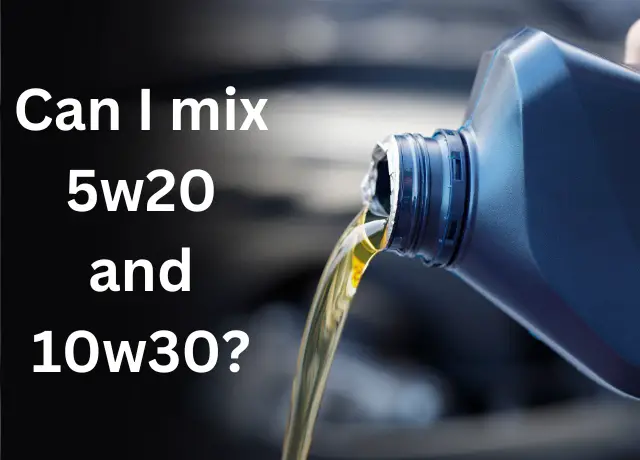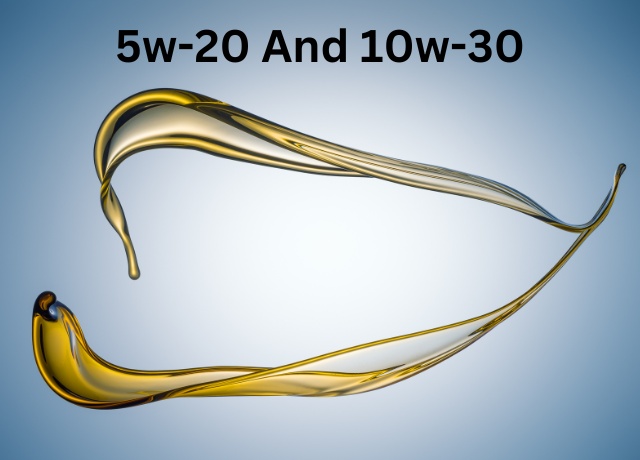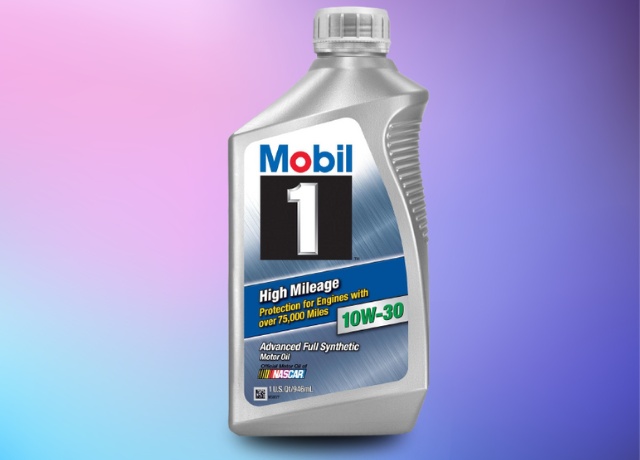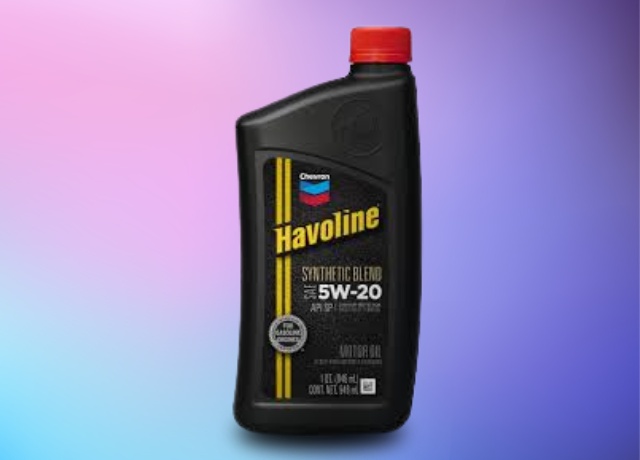Table of Contents

There is much confusion among motorists regarding which engine oil to use and whether it is acceptable to mix different oils. One common question often asked is “Can I mix 5w20 and 10w30 engine oils”?
To be very precise, Yes; you can mix 5w20 and 10w30 oil. But the story does not end here.
Even though mixing different grades of engine oil may appear to be a quick and simple method to get your engine running smoothly, it is important to be aware of the risks and consequences of doing so.
This article examines the dangers and benefits of mixing these two viscosity types so that you can make an informed decision regarding your car’s engine.
What Are The 7 Fluids In A Car (Simplified)

Can You Mix 5w-20 And 10w-30?
There is a common question among motorists as to whether or not it is safe to mix engine oils of different weights. Although it is safe to mix the two types of motor oil, it will not improve the performance of your vehicle instantly.
Mixing 10w30 and 5w20 is simple, but you should be aware that their additive formulations are different. These additives are designed specifically to meet the needs of one or more specific car models.
As an example, some additives reduce friction, while others protect against rust and corrosion.
There is a possibility that oils with different additive specifications will not mix well. As a result, the engine will not be able to benefit from the full benefits that can be achieved by using one motor oil.
Although mixing 10w30 and 5w20 is possible, it is not recommended. The 5w20 oil is significantly thinner than the 10w30 oil. It will not affect the engine’s performance or efficiency. Additionally, you can combine 10w30 oil and 5w20 oil, but it is also not recommended. It should be avoided at all costs.

What Happens When You Mix 5W20 and 10W30 Oil?
It is possible to identify the motor oil used in a vehicle based on its weight and thickness. Although many options are available, the majority of motorists consider and compare 10w30 vs 5w20.
Mixing 10w30 and 5w20 won’t be any serious problems. 5W20 is a good winter oil because of its low viscosity. It is important to recognize that oils do not combine or integrate.
If you use 10W30 oil in a 5W20 engine, the oils will not mix. Using oil of varying viscosities is not a problem, however, you should be aware that varying viscosities may increase oil change intervals.
It is important to keep in mind, however, that if you use motor oil that is too thick for your engine, you may end up consuming an excessive amount of petrol. The engine will have to use more power to pump the thicker oil, causing you to consume more gasoline.
Reasons Why I Can Use 10w30 Instead Of 5w20 (10w30 vs 5w20):
Following are the reasons why you can use 10w30 instead of 5w20.
10w30 vs 5w20 Ingredients that are similar are:
Both motor lubricants are adequate for maintaining the engine’s smooth operation, and both are composed of synthetic oil. If the weather is not particularly frigid, 10w30 can be used instead of 5w20.
Suitable for:
In a vehicle that is equipped with either of these motor lubricants, it is possible to use 10w30 instead of 5w20 as the engine’s efficiency will remain the same.
Don’t Damage Engine Performance:
You can interchange or combine 5W20 and 10W30 without affecting engine performance.

What Is 10w30?
Motor oil with a standard weight of 10w30 is used in most gasoline-powered vehicles. The number before “w” indicates the oil’s cool viscosity, and the number following “w” indicates the oil’s hot viscosity.
In addition to protecting against cold starts, this oil also lubricates at elevated temperatures.
Many drivers prefer 10W-30 because it reduces their petroleum costs, protects their engines from wear and deposits, and is compatible with a wide variety of vehicles.

What Is 5w20?
Oils with a viscosity of 5w20 are used in cars and other vehicles. The number 5 means that the oil has a low viscosity at cold temperatures, while 20 means that it has a high viscosity at hot temperatures.
Oils made of 5W20 are thinner at low temperatures, making it easier for engines to start and move oil. As the oil warms, it thickens, giving you more protection.
As a result of the design of this oil, it is designed to effectively lubricate the engine and ensure its stable cold start.
A number of advantages of the 5W-20 are available, including an increase in fuel efficiency, reduced friction and loss, enhanced engine performance, and the ability to be used in a wide range of vehicles. Because of these benefits, many motorists opt for 5W-20.
What Is The Difference Between 10w30 And 5w20(10w30 vs 5w20)?
The viscosity of the motor oil you select for your vehicle is one of the most essential factors to consider. The viscosity of an oil is a measurement of its thickness and fluidity at various temperatures.
10w30 and 5w20 are the two most common motor oil weights, and each has its own advantages and disadvantages.
Performance:
5W-20 motor oil and 10W-30 motor oil are comparable in terms of lubricating and preventing the wear of engines; however, 10W-30 oil may be more effective at high temperatures if the engine works hard or is located in a warm climate.
In contrast, 5W-20 offers superior protection against cold starts due to its reduced viscosity and improved flow characteristics.
Ideal Use:
With its higher viscosity, 10W-30 is often recommended for older engines or cars that run in warmer climates or carry a lot of weight.
As an alternative, 5W-20 is often used in modern cars, which use as little gas as possible. 5W-20’s lower thickness means it has less friction, saving fuel.
Lubrication:
In addition to being lubricating and protecting better under high temperatures and heavy loads, 10W-30 oils are also suitable for use in the engine. The increased viscosity of 10W-30 allows it to maintain a denser oil coating.
Cold engines wear less because 5W-20’s viscosity is lower. When the engine is cold, it lubricates better and reduces engine wear.
Determine your vehicle’s motor oil viscosity based on the manufacturer’s recommendations.
What’s The Best Substitute For 10w30?
If you want to choose the right oil for your car, it may be hard to find the best alternative to 10w30 motor oil. Most people agree that 5w30 is the best motor oil on the market and is the best option for 10w30. Both types of oil offer the same amount of protection and performance because their viscosity ratings are about the same.
FAQs:
Q: Is It Possible To Use 10W-40 In Place of 5W-20?
A: If you wish to ensure proper lubrication and performance, you should follow the manufacturer’s recommendations regarding oil viscosity.
Q: Is It Possible To Use Old Oil With New Oil?
A: Before adding new oil, it is generally recommended that the old oil is drained completely. This ensures that the oil will perform optimally and maintain its quality.
Q: Is It Possible To Change The Oil Without Replacing The Oil Filter?
A: In general, it is recommended that you replace both the oil and filter for complete maintenance. However, it is possible to change the oil without replacing the filter.
Q: Is Thicker Oil Harmful To The Engine of My Vehicle?
A: It is recommended that you follow the manufacturer’s recommendations when choosing an oil viscosity. Using oil with a higher viscosity than recommended may affect engine performance.
Q: Is It Possible To Switch From 5W-20 To 10W-30?
A: Although you can switch the amount of viscosity in the oil, you should consider the manufacturer’s recommendations and potential effects on engine performance before making such a change.
Q: If I Use The Wrong Oil, What Will Happen?
A: If the wrong oil is used, the engine may perform poorly, wear prematurely, and suffer damage. Oil must be used according to the manufacturer’s recommendations in order for the engine to be properly protected.
Q: For High Mileage, Would It Be Better To Use 10W-30?
A: High-mileage vehicles are often recommended to use 10W-30 because it provides better protection against wear during engine aging.
Q: Is It Possible To Combine Synthetic Oil With Regular Oil?
A: As synthetic and conventional oils have different formulations and performance characteristics, it is generally recommended that they not be mixed.
Q: Can I Mix 0w20 With 5w20?
A: Since both 5W-20 and 0W-20 motor oils share the same viscosity at operating temperatures, mixing them is generally acceptable.
To ensure compatibility and optimize engine performance and protection, it is always a good idea to consult the vehicle’s owner’s manual or contact the manufacturer.
Overall, the answer to Can you mix 5w-20 and 0w-20 is simply, YES you can.
Q: Can You Put 10w30 In A 5w20 Engine?
A: Yes, you can put 10W-30 oil in a 5W-20 engine. But it’s important to remember that it might affect the engine’s performance and warranty if you use a different viscosity oil.
For specific recommendations on oil viscosity, consult your owner’s manual or a mechanic.
Q: Is 10W-30 Thicker Than 5W-30?
A: Yes, 10W-30 is slightly thicker than 5W-30.
Q: Can I Use Thicker Oil In An Older Engine?
A: Using slightly thicker oil in an older engine can provide better protection, but it’s best to consult the vehicle’s manual or a mechanic for recommendations.
Q: Which Is Better, 5W-30 or 10W-30?
A: The choice depends on factors like climate and manufacturer recommendations. 5W-30 offers better cold-start protection and fuel efficiency, while 10W-30 provides improved high-temperature protection.
Q: Can I Put 10W-30 In A 10W-40 Engine?
A: Yes, you can use 10W-30 in a 10W-40 engine, but it’s essential to consider manufacturer recommendations and operating conditions.
Conclusion:
In conclusion, if you find yourself in a pinch and need to mix 5W20 and 10W30 oils, it is possible, but not advisable. In order to ensure optimal performance and longevity, it is always best to use the oil recommended by your car manufacturer.
You should be aware that mixing oils may void the warranty on your vehicle, even if it seems like a quick solution.
In order to minimize unnecessary risks, make sure to follow the manufacturer’s recommendations when you next need an oil change. Your car (and wallet) will thank you!
















































